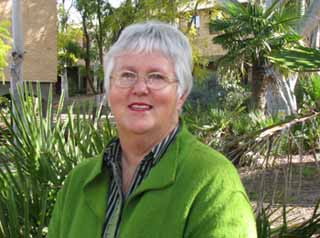 A strong and vocal advocate for quality aged care for older Australians has posed a number of questions about the future of the sector following the release on Monday 8 August of the Productivity Commission Inquiry Report Caring for Older Australians.
A strong and vocal advocate for quality aged care for older Australians has posed a number of questions about the future of the sector following the release on Monday 8 August of the Productivity Commission Inquiry Report Caring for Older Australians.With more than two decades of experience in the aged care sector, Dr Maree Bernoth from the School of Nursing, Midwifery and Indigenous Health at Charles Sturt University (CSU) made two written submissions to the Inquiry and appeared before the Commission about her research into the quality of care delivered to older people in residential aged care.
Dr Bernoth reflects on the final Report:
“The Report, Caring for Older Australians, focuses on the structure of aged care and the fiscal arrangements that facilitate the delivery of care. As the Productivity Commission states, over one million older Australians receive aged care services and by 2050, that figure will grow to over 3.5 million Australians.
“All of the participants in my research projects into the aged care sector have stated that currently the system is convoluted and difficult to navigate. They will appreciate the Report’s proposed single gateway to aged care in the establishment of an Australian Seniors Gateway Agency. This will simplify access to the most appropriate service for the individual and their family.
Aged care for rural Australians
“Older people living in rural Australia, which is a particular focus of my research, have spoken of the distress of separation and the financial burden of having to place a relative in an aged care facility away from their familiar community. Recommendation 11.4 in the Report specifically states that rural, remote and Indigenous aged care needs to be supported. Rural communities will welcome part of the same recommendation that service capability and development evolve and be sustained at a local level.
Aged care training
“Older Australians may now have easier access to care and are contributing financially to their care at all levels but the significant questions are around who is delivering the care? What standard of training was delivered to care staff, what is the quality of mentoring and clinical supervision of care staff, if any, and what are the clinical qualifications and leadership skills of senior staff? It seems that this aspect is almost overlooked in favour of the financial and structural aspects of aged care, yet it is in the answers to these questions that the quality of life of the older person depends.
“The Report states that there needs to be a review of the basic qualifications for aged care workers. However, I am very concerned there appears to be no sense of urgency for a review. It does not appear in the timetable for the implementation of the plan. There is also nothing about clinical mentoring for care staff even though they are caring for older people with complex care needs. Wages for staff is mentioned but there is no insistence that pay parity exist for Registered Nurses (RN) nor is there any encouragement for an RN to remain in, or be attracted to, the sector.
“Users of aged care services will be making a substantial contribution to their care and with the removal of the distinction between high and low care, this is significant for those who will require what is currently high care. If older people are paying for care, it would be reasonable to expect a high standard of care and that there be consistency in this standard across residential aged care.
The Report is confusing here. In one section of the document it states that there is a high standard of care across the sector but in other sections of the Report, it states that the standard of care is variable. Yet there is no sense of urgency in addressing the disparity of standards of care across the sector.
“While the Report contains aspects that will be attractive to older people, especially the single gateway and the fact they will not have to sell their home, they need assurance that the care they will receive will be the care they need. However, consistent, uniform, quality care cannot be assured from this document,” Dr Bernoth concludes.
On the same day as the Report’s release on Monday 8 August, Dr Bernoth’s told the Campus Review that she has observed the Certificate III in Aged Care Work deteriorate from “a once substantive qualification into a meaningless piece of paper”. Read more here.





Social
Explore the world of social